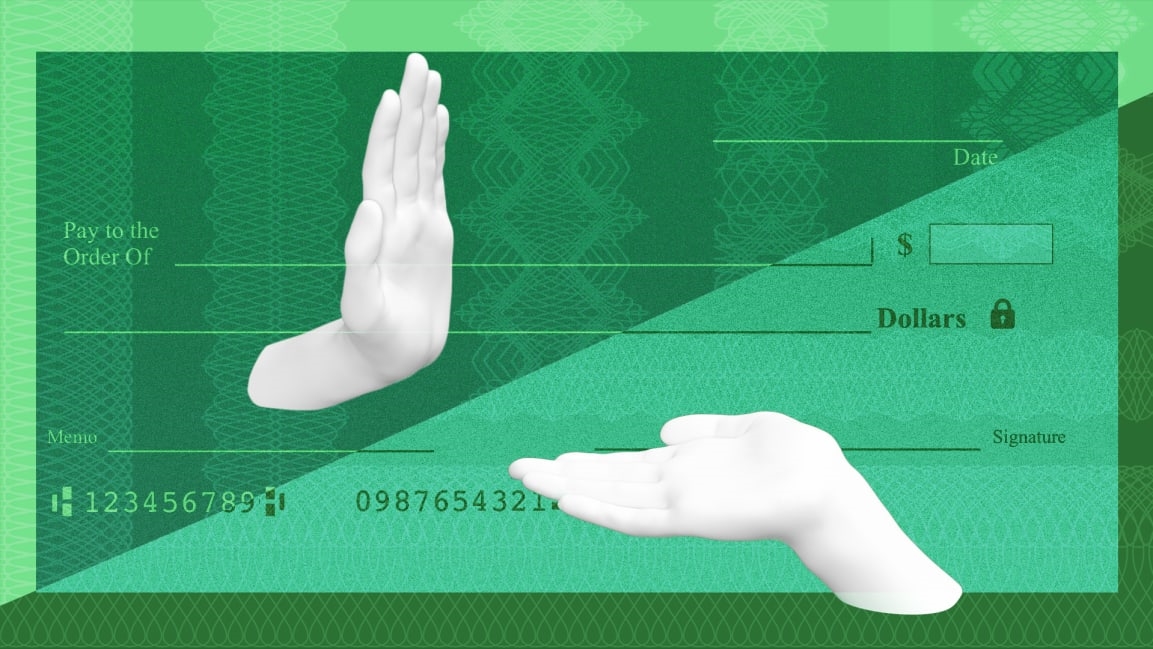Many college students won’t get stimulus checks because of a loophole
Since mid-April, the federal government has sent out millions of stimulus payments to Americans in an attempt to prevent a crippling recession as a result of the coronavirus pandemic.
These one-time stimulus checks, part of the CARES Act, include $1,200 for those earning income below $75,000 and an additional $500 for each dependent child under 17. The checks began to land in bank accounts shortly after April 15th, for those set up with direct deposit.
However, a surprising slice of the American population is being left out. Many college students between the ages of 17 and 24 are ineligible to receive a stimulus of $1,200 because they are claimed as dependents on their parents’ tax return. And their parents won’t receive the CARES Act’s $500, since the bill cuts off payments to parents with a child over 17.
“It seems to be a pretty clear loophole,” says Elise Gould, a senior economist at the Economic Policy Institute.
As a means of financial assistance while their children are at school, many parents listed their college-age kids as dependents because of a $2,000 tax break. “There’s obviously no reason why a college student shouldn’t be considered dependent, especially if they are dependent on their parents, for tax purposes,” says Gould. “It seems pretty arbitrary. “And as far as I understand it, the classification is contingent on your being [marked as] ‘dependent’ on your parents’ tax form.”
“It’s a weird demographic to ignore, since 17- to 24-year-olds are a demographic that really need financial assistance,” says Austin Goergen, a sophomore at Oregon State University, who is now studying for his BA in electrical and computer engineering remotely.
Many college students, like millions of others, have lost work due to the pandemic. Students are now forced to find new ways to pay off student loan debt, which is already reaching historically high levels.
“It’s been devastating to know there’s no government recognition or support for students who spend years of their lives in education, and then in debt, to better their country,” says Kaylyn Jordan, a senior studying education at Southern Oregon University. Jordan found out she wouldn’t be getting a stimulus check three weeks after losing her part-time jobs as a barista at a coffee shop and a student tutor.
“There is no college student that I know of who is earning $75,000. Most individuals I know are just like me, getting by through the help of loans,” says Jordan. Typically Jordan works 25-30 hours a week, while balancing 16-19 credits of courses. “The only way I’m able to get by, and pay for all my monthly costs—textbooks, gas, car maintenance, rent, utilities, food, my $20,000 a year tuition, interest on my loans—is to work.”
Delaney Dunster, a sophomore at Webster University in St. Louis, planned to start an internship with a theater company over the summer, but the experience was cancelled when the company postponed all of its shows until August. Dunster anticipated making $5,000 from the internship.
Now, she says she feels hesitant about going out in person and continuing her search for new work: “The [stimulus check] would have allowed me time to wait for a safer environment to look for work, but now I have to do it at a greater risk to my and my family’s health.”
Both she and her 16-year-old sister have moved back into their parents’ home, and are taking classes remotely. A stage management major, Dunster tries her best to maintain a routine, but notices the disconnect in completing the more hands-on components of her specialized program.
To cover the costs for the upcoming fall, the sophomore is anticipating taking out more loans as a way to recoup some of the lost wages from her paid internship. “My parents help me when they can, but I believe school should be mostly my responsibility to cover, which is hard when I don’t have any income.”
Dunster and several of her friends have sent letters to Congress and created a petition on Change.org, which has climbed to almost 1,800 signatures. Goergen has also created a petition on the online platform, under the name, “Financial Relief for Young Adults During the COVID-19 Pandemic.”
“What I’ve heard from a lot of the dependents is that their parents help cover some costs, but they don’t cover all of their costs,” he says. “Now, along with their parents losing their jobs, college kids have lost their student work.”
The odd territory 17- to 24-year-olds find themselves in—claimed as dependent, but not reaping the benefits—is prompting many young people to take a closer look at how they are viewed in the eyes of the government.
“I thought that at least if you were a dependent, your parents would get $500 because the [CARES Act] states that for every child you have, you’ll receive $500,” says Goergen. “It just gives the impression that when you turn 17, you’re all of a sudden going to be treated differently.”
Goergen, who has kept his campus job in tech support, says he is lucky. But he sees many of his classmates suffering who have lost their university jobs. Most of his peers work either on campus, taking roles in dining services, or off-campus roles that include fewer than 40 hours of work a week.
Uncertainty around their futures and mounting loan payments may force some college students to reconsider the merits of finishing out their full college career.
“If these students now all of a sudden have to take out more loans, it could definitely seem like an enticing option to take a gap year, or maybe just drop out of school altogether,” Goergen says.
Jordan says she was depending on spending $5,000 in earnings from her part-time jobs to cover travel expenses for a postgraduation job offer. Now, she is unsure if she will be able to support herself and make it to the first day. “I spent four years in university to get my degree and worked the past four months participating in countless interviews and workshops to obtain a job within half a year of graduation,” she says. “Despite receiving an offer for my dream job, I don’t see how I’m going to be able to get to my job if something doesn’t happen right now.”
Austin Goergen’s Change.org petition is on the edge of reaching 2,500 signatures, and his Reddit post, linking to the platform, was upvoted 9,000 times, with countless commentators expressing shock they were not receiving a stimulus payment. “I would like for people not just to sign the petition, but actually email their senators and demand action.” says Goergen. “People need to actually create awareness of this issue if they want to see anything change.”
(7)



